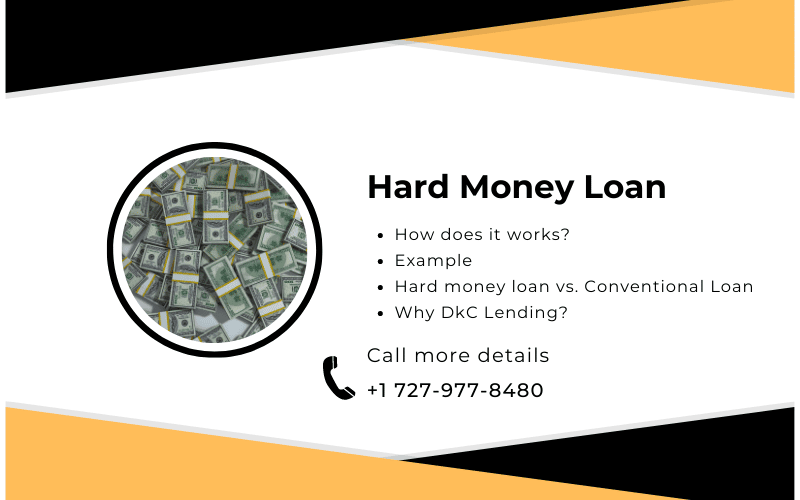What is Hard Money?
The term Hard money refers to a term in the real estate market that means a currency that is directly backed by a valuable commodity such as gold or silver.
Hard Money Loan
A hard money real estate loan is a type of loan that is secured by real property and is considered a short-term loan for improving, refinancing, and reselling real estate properties. These types of short-term loans typically have a term of 6-18 months.
Hard money loans are primarily used in real estate investment transactions, with the lender being private investors and not banks or commercial lending institutions.
As noted, a hard money loan is primarily used for real estate investment transactions and is a way in which to raise capital quickly but at a higher cost and lower loan-to-value (LTV) ratio. Since hard money loans rely on real property as collateral, rather than the credit worthiness of the borrower, the funding time is typically shorter.
Hard money loans are often sought by property flippers who plan to resell the real estate that is used as collateral for the financing. The hard money loans’ higher costs are affordable for borrowers because the costs are offset by the loan’s short duration and the resale value of the improved real estate property.
How does it work?
Individuals, investment firms, and other private entities typically provide these loans to real estate investors. Similarly, nonbanking institutions provide hard money loans. Real estate is the most typical type of collateral for a hard money loan. The comparable real estate value of the collateral (single-family and multifamily residences, commercial properties, and land) often determines the value of a hard money loan. The creditworthiness of the borrower is rarely considered.
However, while some lenders require the applicant to put down at least 10% of the loan amount or a 90% LTV loan, most lenders require 70% or more LTV. A hard money loan requires underwriting based on specific funding criteria and funding is normally provided a few days after underwriting approval.
Hard Money Loan Example
Assume a real estate investor who resides in Florida plans to purchase a property for $200,000 with a remodeling budget of $50,000. They decided to put down 30% of the purchase price ($60,000). They choose to fund the remaining sum ($140,000) via a one-year hard money loan. The hard money lender charges 4% in origination fees and a 12 percent interest rate.
In this example, the borrower receives a loan of $140,000 and pays $5,600 origination fees at closing and $16,800 of interest ($140,000 x 12%) over the course of one year.
The borrower’s basis in the home after renovation and financing would be $272,400 ($140,000+$60,000+$16,800+$5,600), after which the home is ready for resale to a new buyer.
Why use hard money lending?
Since hard money loans are collateralized by the investment property and not the creditworthiness of a borrower, borrowers with lower credit ratings can secure hard money loans. Hard money loans are widely used by real estate dealers and investors who buy, repair, and resell properties in a short amount of time.
Hard money loans have a straightforward collateral-based underwriting process, making them suitable for completing the transaction in just a few days as opposed to traditional mortgage financing. Purchasing a property with a mortgage can frequently take more than a month, from application to closing.
Hard Money Loan vs. Conventional Loan
Hard money loans differ from conventional loans in many respects. The rules and terms of these loans, like other forms of loans, might vary depending on the lender and the agreement. Hard money loans differ substantially from conventional loans in terms of the loan term, speed of financing, interest rate, and credit requirements. Some differences include:
- Approval of a conventional loan might take 30 to 60 days. In contrast, a hard money loan may normally be obtained in a matter of days.
- Hard money loans sometimes have short payback terms ranging from six months to a year while a typical conventional loan has a payback duration of 15 or 30 years.
- Hard money loans can have interest rates ranging up to 15%, substantially more than other types of conventional loans.
- Hard money lenders are more concerned with property valuation and LTV as opposed to traditional loans that prioritize good credit scores and low debt-to-income ratios.
Creative financing
Creative financing refers to unique methods and strategies for securing funds and capital to purchase real-estate investments. Traditional financing options are normally provided by financial institutions, banks and mortgage lenders. With creative financing, an investor can access funding in a variety of creative ways.
Why DkC Lending?
DKC Lending offers hard money lending services to real estate investors in Tampa, Jacksonville, and other Florida cities. We provide borrowers with personalized loan origination services and funding. DKC has a variety of funding sources, which allows us to match the borrowers’ hard money loan needs with the best source of funding for their deal. Our real estate development experience allows us to offer our borrowers a unique collaboration on every loan. We offer a high level of individual consulting, including review of deal analytics, rehab budgets, and deal viability.
DKC has a proven track record of successful underwriting and closing deals and brings an extensive real estate development background and expertise to help guide borrowers on each unique transaction.


